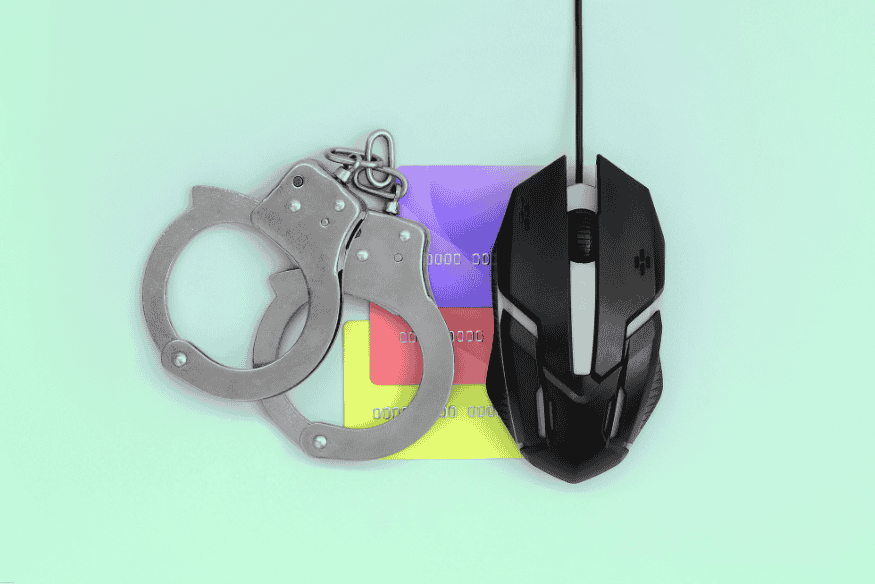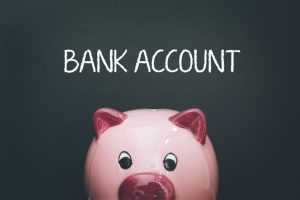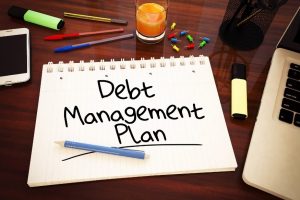When you’re online, keeping your credit card security top-notch is key. The cost of fraud worldwide is huge, hitting $32.04 billion in 2021.
This number is set to rise, hitting $38.5 billion by 2027. It’s vital to protect yourself from fraud. Knowing the risks and taking steps to keep your info safe can lower your chances of being a victim of credit card fraud.
Key Takeaways
- Understanding the risks associated with credit card transactions is vital.
- Proactive measures can significantly reduce the risk of credit card fraud.
- Safeguarding your financial information is crucial in preventing fraud.
- Staying informed about the latest security measures can help protect you.
- Regularly monitoring your accounts can help detect suspicious activity.
The Growing Threat of Credit Card Fraud
As technology gets better, so does the risk of credit card fraud. This is a big problem for people and banks in Finland. It happens when someone uses your credit card info without permission.
It’s important to know about credit card fraud to avoid it. With more online payments, fraudsters have more chances to trick people. So, it’s key to keep up with the latest on credit card fraud.
Current Statistics in Finland
Finland has seen more credit card fraud cases lately. The numbers are up, and it’s costing a lot of money. This affects both the people who lost money and the banks.
| Year | Reported Cases | Financial Loss |
|---|---|---|
| 2022 | 5,000 | €10 million |
| 2023 | 7,000 | €15 million |
Most Common Fraud Methods
Fraudsters use different ways to commit credit card fraud. They include card skimming, phishing, and online scams. Knowing these methods helps people protect themselves.
- Card skimming: Installing devices on ATMs to capture card information.
- Phishing: Tricking consumers into revealing sensitive information via fake emails or websites.
- Online fraud: Using stolen credit card information to make online purchases.
Why Fraudsters Target Finnish Consumers
Finnish people are seen as good targets because they trust online payments and banks. Scammers use this trust to pull off complex scams.
Key factors making Finnish consumers targets include:
- High digital literacy and adoption of online banking.
- Trust in financial institutions.
- Increasing use of contactless payments.
Understanding Different Types of Credit Card Scams
The world of credit card scams is changing fast. It’s a big challenge for both consumers and banks. Knowing how scammers work is key to keeping your money safe.
Card Skimming and Cloning
Card skimming and cloning are sneaky ways to steal your card info. Skimming uses a device on ATMs to grab your card details. Cloning makes a fake card from this info for fake buys.
To stay safe, check ATMs and card readers first. Also, hide your PIN when typing it in.
Online Fraud and Phishing
Online fraud and phishing are big problems now. Online fraud uses stolen card info for online buys. Phishing scams try to get your card details with fake emails or sites.
Be careful online. Don’t click on suspicious links or share personal info without checking it’s real.

Identity Theft
Identity theft happens when someone uses your personal info, like your card details, to pretend to be you. This can hurt your finances and credit score a lot.
Keep your info private. Watch your credit reports and use strong, different passwords online.
Knowing about these credit card scams helps you avoid them. Stay informed and use safe practices to protect your money.
The Real Cost of Credit Card Fraud
Credit card fraud costs more than just the stolen money. It affects your financial and personal life in many ways. Being a victim means more than just losing money; it can also harm your credit score and financial health over time.
Immediate Financial Impact
The first hit from credit card fraud is big. Unauthorized charges can lead to unexpected debt and financial strain. You might also get hit with fees like overdrafts or late payments. It’s key to tackle these problems fast to lessen the financial blow.
Long-term Effects on Credit Scores
Credit card fraud can hurt your credit scores for a long while. If you don’t fix the fraud quickly, it can cause missed payments and high credit use. These issues can make it hard to get loans or credit later. So, it’s vital to keep an eye on your credit report and correct any mistakes.
Emotional and Time Costs
Credit card fraud also takes a toll on your emotional well-being. Handling the aftermath can be stressful and time-consuming. You’ll likely spend hours talking to your bank, filling out forms, and watching your accounts. This is tough, especially if you’re already tight on money or facing other financial worries.
Essential Prevention Strategies
To keep your financial info safe, it’s important to use key prevention strategies. Being proactive can greatly lower the chance of credit card fraud. Here are some steps you can take to protect yourself.
Creating Strong Passwords and PINs
One simple yet powerful way to protect your credit card info is to make strong passwords and PINs. Don’t use easy-to-guess info like your birthdate or common patterns. Instead, mix letters, numbers, and special characters. Also, use different passwords for each account to avoid losing access if one is hacked.
Setting Up Transaction Alerts
Setting up transaction alerts is another smart move. Many banks and credit card companies offer alert services. These services notify you of any account activity. This way, you can quickly spot and act on any suspicious activity. You can customize these alerts to fit your needs, like setting limits for transaction amounts.
Regular Account Monitoring
Regularly checking your account is key to catching fraud early. Look over your statements often for unknown transactions. If you see something odd, tell your bank or credit card company right away. You can usually check your accounts online or through mobile apps.
Credit Freezes and Locks
Think about using credit freezes or locks for extra protection. A credit freeze stops new accounts from being opened in your name, making it harder for fraudsters. A credit lock lets you lock and unlock your reports easily. Both can help prevent identity theft and credit card fraud.
| Prevention Strategy | Description | Benefits |
|---|---|---|
| Strong Passwords and PINs | Use a mix of letters, numbers, and special characters | Reduces risk of unauthorized access |
| Transaction Alerts | Receive notifications for transactions | Quick identification of suspicious activity |
| Regular Account Monitoring | Frequently check account statements | Early detection of fraud |
| Credit Freezes and Locks | Restrict access to your credit reports | Prevents new accounts from being opened fraudulently |
By using these key prevention strategies, you can greatly improve your credit card security. This helps protect you from fraud.
Securing Your Physical Card
Keeping your physical credit card safe involves a few key steps. It’s not just about preventing loss or theft. You also need to protect the personal info it holds.
Safe Storage Practices
Storing your card in a safe spot is crucial. Use a wallet or a card holder and keep it in a secure place. This could be a locked drawer or a zipped pocket. Never leave your card where others can easily find it.
When to Share Your Card Information
Be careful about sharing your card details. Only give out your card info when it’s really needed. Legit businesses won’t ask for your full card number unless you’re making a purchase. Watch out for phishing scams or any unexpected requests for your card info.
Disposing of Old Cards Properly
When your card expires or is replaced, get rid of the old one right. Cut it into pieces, making sure to destroy the card number, expiration date, and security code. This stops others from using your card info without permission.
| Best Practices | Benefits |
|---|---|
| Store card securely | Prevents loss or theft |
| Be cautious with card information | Reduces risk of phishing scams |
| Dispose of old cards properly | Protects against unauthorized use |
Digital Security Measures

As you explore the digital world, strong digital security measures protect you from credit card fraud. Keeping your online transactions safe involves good online shopping habits, knowing about mobile payment security, and handling digital wallets well.
Safe Online Shopping Habits
To shop online safely, follow some key steps. First, make sure to recognize secure websites. A secure site has “https” in its URL and a lock icon in the address bar. This means your data is safe.
Recognizing Secure Websites
Always look for “https” and the lock icon before you enter your credit card details. This step ensures your info is sent securely.
Using Virtual Cards for Online Purchases
Virtual cards add extra security for online buys. They can be set up with limits and expiration dates. This helps protect your real credit card info.
Avoiding Public Wi-Fi for Transactions
Public Wi-Fi is not safe, making it easy for hackers to get your data. Don’t use public Wi-Fi for financial stuff or sensitive info.
Mobile Payment Security
Mobile payment security is key too. Systems like Apple Pay or Google Pay use tokenization. This keeps your real card info safe, not stored on your device or sent during transactions.
Managing Digital Wallets
Managing digital wallets right is important. Check the cards in your wallet often and keep your device locked with a strong password or biometric. For more tips on avoiding credit card fraud, check out Softjourn’s article on detecting and preventing credit card fraud.
By using these digital security steps, you can lower the risk of credit card fraud. This makes online shopping safer for you.
Recognizing Warning Signs of Fraud
Spotting credit card fraud early is key. Look out for suspicious transactions, phishing attempts, and signs of a compromised card. Being alert can save your financial info and prevent big losses.
Suspicious Transactions
Suspicious transactions are a big fraud warning sign. They can be small, odd charges or big, unauthorized buys.
Unexpected Small Charges
Fraudsters test stolen cards with small, sneaky charges. Keep an eye on your account for these unexpected small charges. For more tips, check Capital One’s guide on credit card.
Large Unauthorized Purchases
Large unauthorized purchases mean your card might be stolen. If you see big, unapproved buys, call your bank fast. This stops more fraud.
Phishing Attempts and Scams
Phishing attempts are common fraud tricks. Watch out for emails, calls, or texts asking for your card info. Real banks never ask for this via email or text.
Compromised Card Indicators
If your card is hacked, you might see odd account activity or changes. Always check your account and report any compromised card indicators to your bank.
What to Do If You Become a Victim
Discovering credit card fraud can be scary. But, there are quick steps to take. Acting fast helps protect your money.
Immediate Steps to Take
If you think you’ve been a victim of credit card fraud, act quickly. Here are the first steps:
Contacting Your Bank
First, tell your bank or credit card company about the fraud. They can stop your account to prevent more theft.
Changing Passwords and PINs
Change your passwords and PINs for the stolen card and other accounts. Use different ones to keep your accounts safe.
Documenting the Fraud
Write down all the details of the fraud. Include dates, amounts, and any talks with your bank. This info is key for future actions.
Reporting to Finnish Authorities
In Finland, report the fraud to the right places. This includes the police or the Finnish Consumer Ombudsman. Reporting helps with investigations and keeps a record.
| Authority | Contact Method | Purpose |
|---|---|---|
| Finnish Police | Online Report or Local Station | Filing a formal complaint |
| Finnish Consumer Ombudsman | Website or Email | Reporting consumer fraud |
Working with Your Bank on Reimbursement
After reporting, work with your bank to get your money back. Banks have rules to help you if your card is stolen. They’ll help you through the process.
By following these steps, you can handle the situation well. This way, you can lessen the fraud’s effect on your finances.
Finnish Banking Protections and Regulations
Finnish law offers strong protections for consumers. This includes rules on bank liability and insurance for extra safety. Knowing these can make you feel more secure with credit cards.
Consumer Rights Under Finnish Law
In Finland, you have rights for credit card issues and fraud. You can challenge unauthorized charges and get your bank to look into it. Banks must also keep your accounts safe.
Bank Liability Policies
Finland’s banks cover some fraud losses if you’ve been careful with your card details. If your card is stolen, you can tell your bank. They might pay you back for the loss. Always check your bank’s policies to know what you’re covered for.
Insurance Options for Additional Protection
Some Finnish banks offer extra fraud protection through insurance. These policies can help with losses not covered by your bank. It’s worth looking into these options to see if they fit your needs.
| Protection Type | Description | Benefit |
|---|---|---|
| Consumer Rights | Legal protections under Finnish law | Dispute unauthorized transactions |
| Bank Liability | Banks are liable for certain fraud losses | Potential reimbursement for fraudulent transactions |
| Insurance Options | Additional protection against fraud losses | Extra layer of security beyond bank reimbursement |
Conclusion

In Finland, knowing about credit card fraud risks is key. By taking steps to prevent it, you can lower your chances of being a victim. Good credit card security means being aware, careful, and taking action to keep your financial info safe.
This article covered many aspects of credit card security. We talked about different scams and how to spot fraud. We also shared important ways to prevent fraud, like using strong passwords and setting up alerts. By following these tips, you can better protect yourself from fraud.
Preventing fraud is a constant effort that needs your ongoing focus. Keep up with new scams and tactics fraudsters use. Always check your account statements and tell your bank about any odd activity. By staying alert and proactive, you can greatly improve your credit card security and have a safer financial life.









